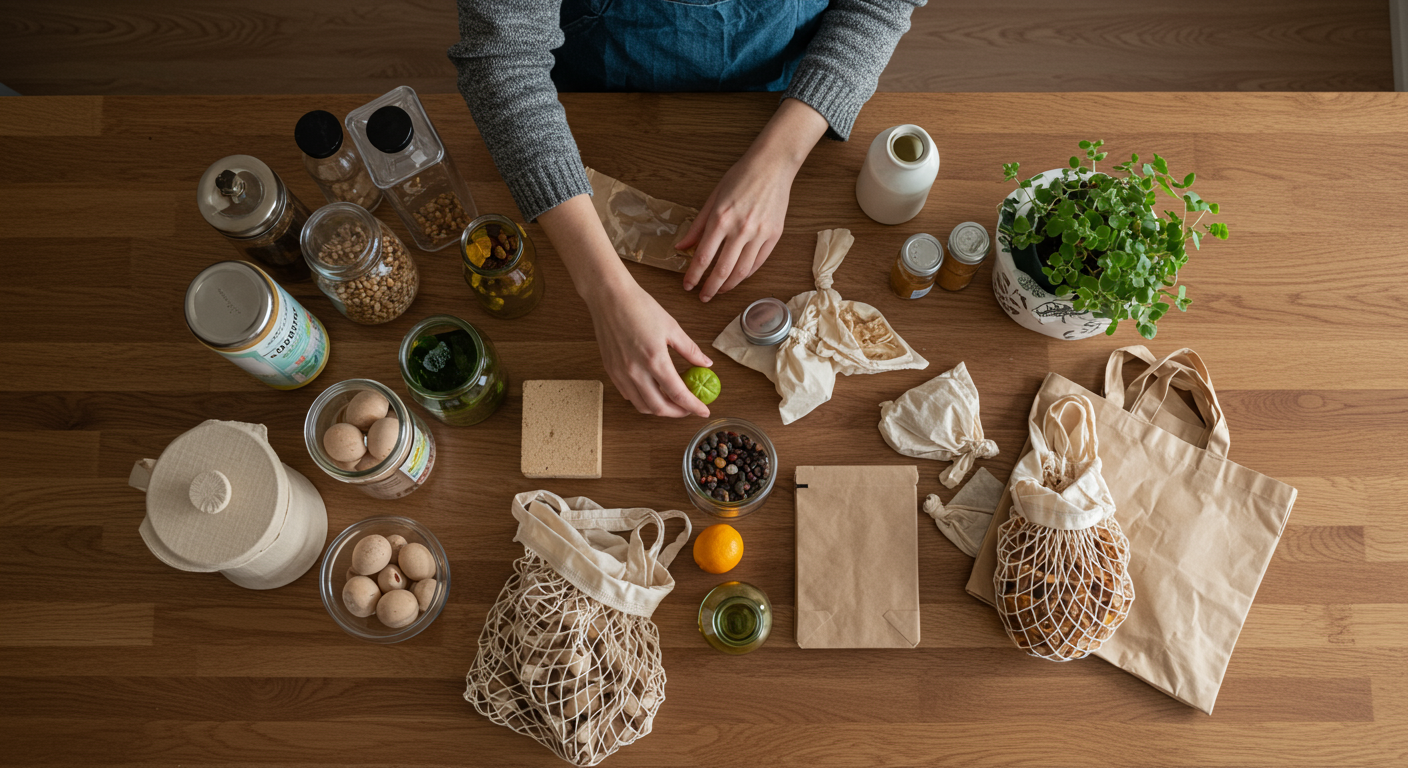Are you an eco-conscious consumer looking to reduce your environmental footprint? In today's world, making sustainable choices in every area of our lives is more important than ever. One of the easiest places to start is in your kitchen. Ditching single-use plastics and embracing eco-friendly food storage solutions not only reduces waste but also creates a healthier home environment. This guide will explore five essential eco-friendly food storage options to transform your kitchen and help you live a greener lifestyle.

Why Choose Eco-Friendly Food Storage?
Choosing eco-friendly food storage offers numerous benefits. Traditional plastic containers often contain harmful chemicals that can leach into your food. They also contribute significantly to plastic waste, which ends up in landfills and oceans. By switching to sustainable alternatives, you're:
- Reducing Plastic Consumption: Minimizing your reliance on single-use plastics.
- Improving Food Preservation: Many eco-friendly options help keep food fresher for longer.
- Creating a Healthier Home: Avoiding chemicals found in plastic.
- Conserving Resources: Supporting products made from renewable and sustainable materials.
Understanding Green Certifications & Labels
When shopping for eco-friendly food storage, it's helpful to understand some common certifications and labels that indicate a product's sustainability:
- BPA-Free: While not a sustainability certification, it ensures the product doesn't contain Bisphenol A, a harmful chemical found in many plastics.
- USDA Certified Biobased Product: This label indicates that the product is made from renewable biological ingredients.
- Fair Trade Certified: Ensures that the product was made in fair labor conditions and supports sustainable farming practices.
Top 5 Eco-Friendly Food Storage Solutions Reviewed
Here are five top-rated eco-friendly food storage solutions to help you revamp your kitchen:
- Glass Containers: Glass containers are a classic and reliable choice. They're non-toxic, easy to clean, and don't absorb odors or stains. They're also microwave and dishwasher safe. Look for tempered glass for added durability.
- Stainless Steel Containers: Stainless steel is another excellent choice, especially for those wanting a durable and long-lasting option. They are also non-toxic and do not leach chemicals. Stainless steel containers are great for both refrigerator and freezer storage.
- Reusable Beeswax Wraps: Beeswax wraps are a versatile, natural alternative to plastic wrap. Made from beeswax, organic cotton, tree resin, and jojoba oil, they're ideal for wrapping food items like fruits, vegetables, cheese, and bread. They are reusable and compostable.
- Silicone Food Storage Bags: Silicone bags are a flexible and durable option that can be used in the freezer, microwave, and dishwasher. They're made from food-grade silicone, a non-toxic material that is free of BPA, phthalates, and latex.
- Bamboo Containers: Bamboo containers are a lightweight, sustainable option made from rapidly renewable bamboo. They're perfect for dry goods and can add a natural touch to your kitchen.
How to Integrate into Your Daily Life
Integrating eco-friendly food storage into your daily life is easier than you might think:
- Start Small: Begin by swapping out one or two plastic containers for eco-friendly alternatives.
- Plan Ahead: When going grocery shopping, bring your reusable containers for bulk items or leftovers.
- Educate Yourself: Research different materials and their environmental impacts.
- Store Properly: Store food in the correct containers to maximize freshness and prevent waste.
Maximizing Environmental Impact
To maximize your environmental impact:
- Reduce Waste: Choose containers that eliminate single-use plastics and extend the life of your food.
- Buy in Bulk: Purchase food items in bulk and store them in your eco-friendly containers.
- Compost Food Scraps: Compost food scraps to further reduce your waste and create nutrient-rich soil for your garden.
Budget-Friendly Sustainable Options
Embracing eco-friendly food storage doesn't have to break the bank. Here are some budget-friendly tips:
- Start with what you have: Repurpose glass jars from sauces and spreads.
- Look for sales: Shop for affordable containers during sales and discounts.
- Make your own beeswax wraps: DIY beeswax wraps are cost-effective and fun to make.
Making Informed Choices for a Greener Future
By choosing eco-friendly food storage solutions, you're taking a significant step toward a greener, healthier lifestyle. You're not only reducing plastic waste and protecting the environment but also creating a more sustainable and conscious home. Make informed choices, educate yourself, and embrace the change. Your kitchen, and the planet, will thank you!